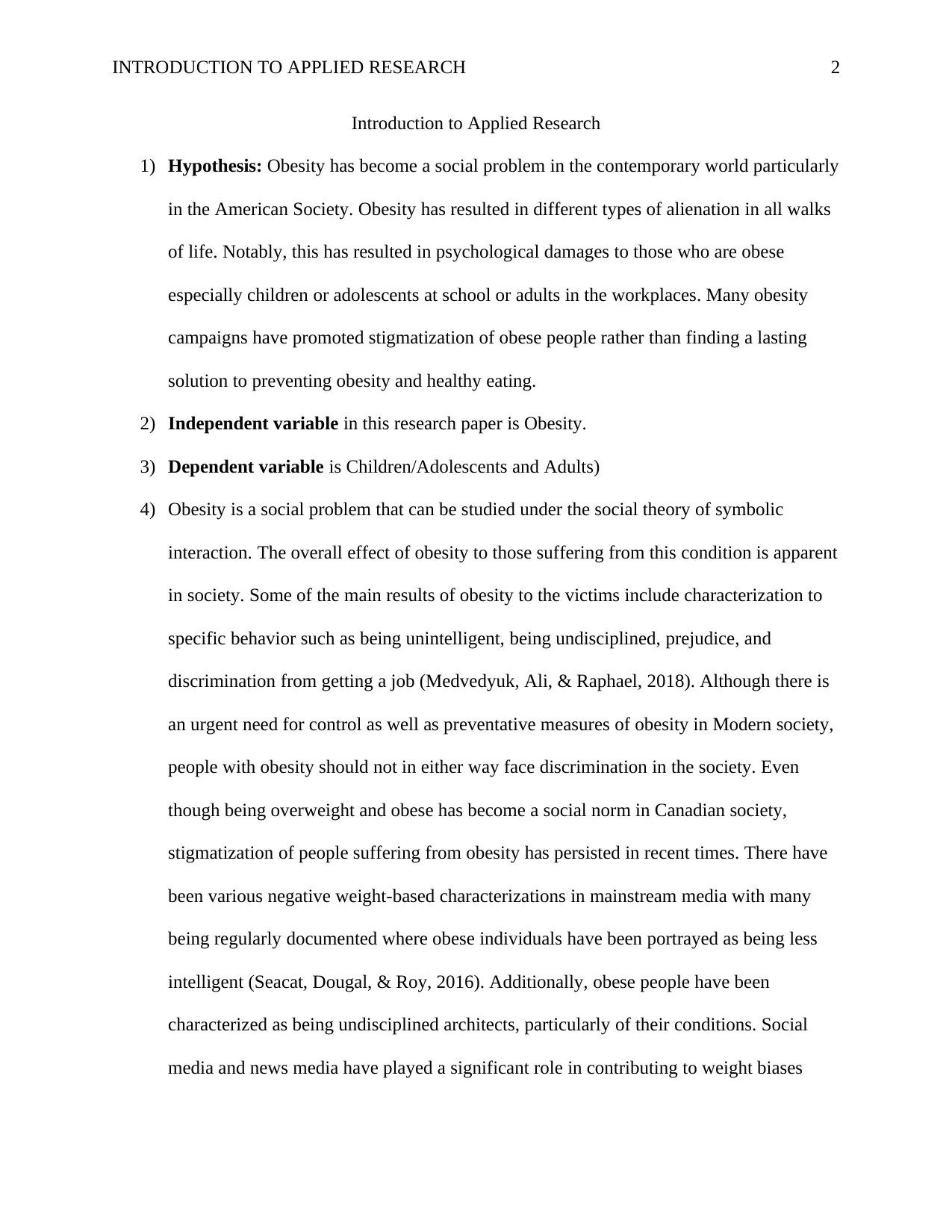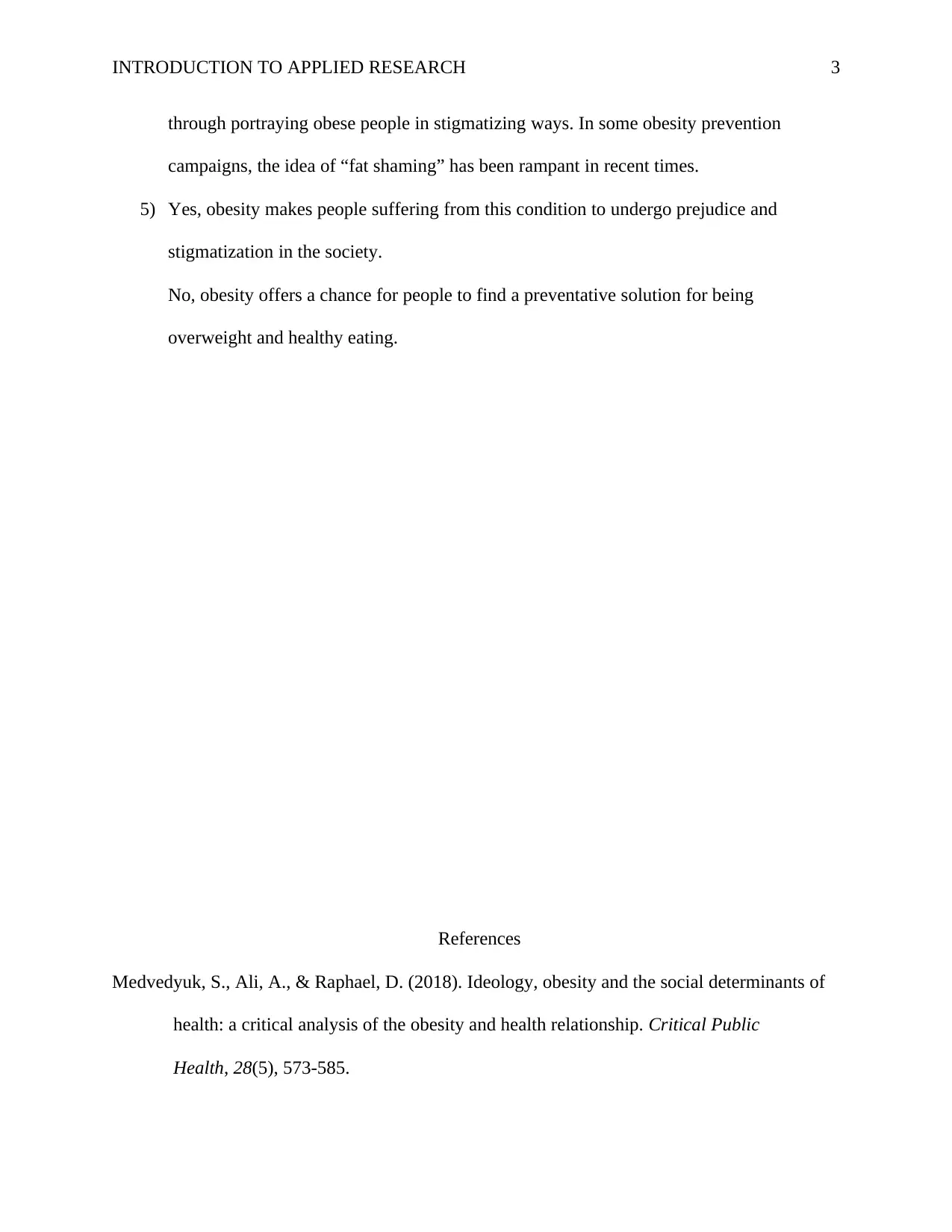Introduction to Applied Research: Hypothesis Assignment - COMM AS401
VerifiedAdded on 2023/04/26
|4
|494
|431
Homework Assignment
AI Summary
This assignment focuses on an applied research hypothesis concerning obesity as a social problem, particularly within the context of American society. The student identifies obesity as the independent variable and children/adolescents and adults as the dependent variable, exploring its impact through the lens of symbolic interaction theory. The paper argues that obesity leads to various forms of alienation, including psychological damages, stigmatization, and discrimination. The student highlights the role of media in perpetuating negative weight-based characterizations and weight biases, while also acknowledging the need for preventative measures and healthy eating. The assignment provides a detailed analysis of the social implications of obesity, supported by relevant references.
1 out of 4








![[object Object]](/_next/static/media/star-bottom.7253800d.svg)